
Chemistry and Biochemistry
HPU offers a rigorous chemistry and biochemistry education that prepares students for graduate and health professional schools, as well as direct entry into the scientific workforce, through both conventional pathways and pre-health professions concentrations. Our chemistry program is modeled after the American Chemical Society (ACS) guidelines for undergraduate chemistry education while our biochemistry programs are based on guidelines from the American Society of Biochemistry and Molecular Biology (ASBMB). All our students develop the intellectual, experimental, and communication skills needed to become effective scientific professionals. Our dedicated faculty
Chemistry is the study of matter which makes up everything in the universe, including ourselves and our planet. As such, chemistry is central to the natural sciences, serving as a foundation for all other disciplines – biochemistry, biology, genetics, environmental and marine sciences, engineering, and even astronomy. Chemistry is also an excellent foundation for all of the health professions including medical, pharmacy, dental, and veterinary sciences.
By studying chemistry, students develop an understanding of how the universe works at the fundamental molecular level. A strong background in chemistry can prepare students not only for service directly in the chemical area (e.g. education, biotech companies, analytical chemistry, pharmaceutical research, synthesis, material sciences, quality control, etc.), but also for careers in many related disciplines (e.g. medical fields, environmental services, alternative fuels, etc.).
There is a wide range of career paths for students who major in chemistry. For more ideas, check out the American Chemical Society’s College to Career page, explore their Chemistry Careers, and view Chemist Profiles to get started in building your own unique career path.
Biochemistry is the study of the molecules and chemical reactions inside all living things. It is the discipline at the intersection of chemistry and biology that explores how thousands of different biomolecules organize into tens of thousands of biological functions that give rise to millions of different life forms. In short, biochemists use chemical knowledge and techniques to answer biological questions.
Biochemistry schools offer a wide range of career options for students who major in biochemistry. Because biological molecules are so fundamental to the function and interactions of organisms, biochemists study life at all levels – from individual molecules to entire ecosystems – making it an integral part of fields such as medicine, biomedical research, genetics, forensics, ecology, microbiology, plant sciences, zoology, and more. At the same time, training in biochemistry also develops transferable skills that allow biochemists to work in fields outside the sciences including law, cosmetic and food industries, manufacturing, publishing, sales/marketing, and many others. For more ideas, check out the Biochemical Society’s career guide, explore the ASBMB's Exploring careers in biochemistry and molecular biology, and/or talk to our biochemistry faculty to get started in building your own unique career path. These publications provide a great perspective on the field and the types of career paths graduates can pursue with a Biochemistry degree.
-
Rigorous Bachelor of Science degrees in chemistry and biochemistry through which our students develop the intellectual, experimental, and communication skills needed to become effective scientific professionals
-
A chemistry program built upon the American Chemical Society (ACS) guidelines for undergraduate chemistry education
-
Biochemistry programs are built upon the American Society of Biochemistry and Molecular Biology (ASBMB) guidelines for undergraduate biochemistry education
-
Small class sizes and dedicated faculty who work directly with students in hands-on experiences in research and in laboratory courses
-
Lab courses that are rich, relevant, and reflective of academic, industrial, and government laboratories
-
Research labs that are highly accessible, well-equipped, and well-supported, including funding from the National Institutes of Health
-
Our Conventional Chemistry and Conventional Biochemistry pathways prepare students for graduate schools and direct entry into the scientific workforce while our Pre-Health Chemistry and Pre-Health Biochemistry concentrations prepare students for entry into medical, pharmacy, veterinary, and dental schools
The Biochemistry program outcomes are:
- Demonstrate an understanding of the basic and foundational chemical principles that provide significant insight into the functioning of living systems.
- Demonstrate understanding of key concepts and principles regarding biochemical structures, principal biochemical pathways of living organisms and the molecular basis of biochemical processes
- Demonstrate expertise in commonly used biochemical laboratory methods
- Demonstrate an understanding of the theory and learn to operate a wide variety of advanced biochemical instrumentation.
- Demonstrate an understanding of how to access and interpret literature in the field of biochemistry
- Critically analyze experimental results
- Present scientific information orally using visual aids
- Communicate scientific information in written reports
- Acquire and statistically analyze quantitative data
- Solve biochemical problems quantitatively
The Chemistry program outcomes are:
- Demonstrate an understanding of the basic and foundational chemical principles that provide significant insight into the functioning of the physical world.
- Demonstrate knowledge of key concepts within the core areas of chemistry: analytical, biochemistry, inorganic, organic and physical.
- Develop expertise in commonly used chemical laboratory methods.
- Demonstrate an understanding of the theory and learn to operate a wide variety of advanced chemical instrumentation.
- Learn to access and interpret literature in the field of chemistry.
- Critically analyze experimental results.
- Present scientific information orally using visual aids.
- Communicate scientific information in written reports.
- Acquire and statistically analyze quantitative data.
- Solve chemical problems quantitatively.
Some example careers for chemistry and biochemistry graduates include:
- Chemical industry
- Medicine, dentistry, pharmacy
- Graduate school in chemistry, biochemistry, engineering, and related fields
- Teaching
- Pharmaceutical and biotech jobs
- Forensics labs
- Diagnostics and analytical labs
Majoring in chemistry and biochemistry develops skills that are transferable to careers outside the sciences. These include:
- Critical thinking
- Problem solving
- Analytical and math skills
- Scientific writing
- Oral communication
- Leadership and team skills
- Planning/time management
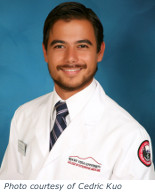
Cedric Kuo, D.O. |

Chih-Wei Chang, M.D. |
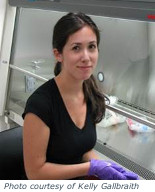
Kelly Galbraith, M.S. |
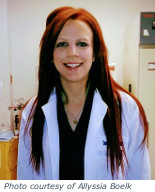
Allyssia Boelk |

Leo Phuc Nguyen, M.S. |

Hannah Seo |
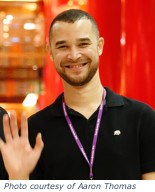
Aaron Thomas |
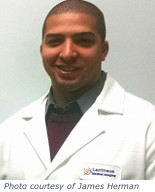
James Herman |

Erik Henze |
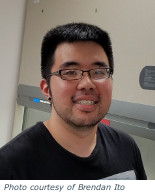
Brendan Ito |
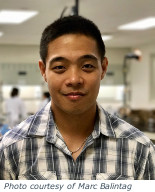
Marc Balintag |
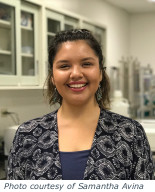
Samantha Avina |
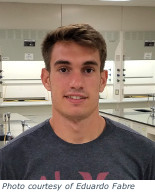
Eduardo Palacios Fabre |
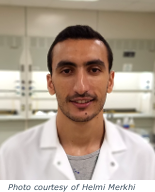
Helmi Merkhi |
You may find specific requirements for undergraduate admissions here.
Advanced Instrumentation
The Chemistry and Biochemistry Programs create high-impact hands-on training opportunities for the students in our instructional courses. While many universities restrict their advanced scientific instrumentation to research activities, at HPU, we’ve integrated our high-tech instrumentation into our teaching labs, training experienced student mentors to lead and supervise the instructional use of these instruments.
Pre-Health Professions Concentrations
Our pre-health professions concentrations train students in
Undergraduate Research Opportunities
HPU chemistry and biochemistry faculty offer approximately 25 undergraduate biomedical research experiences each year. These students also frequently have the opportunity to present their work at scientific conferences and/or contribute to publications. If you are a Federal Work Study student or just want to volunteer, contact our faculty below to inquire as to whether there are open positions in their labs. One of our most successful student research programs is the INBRE Student Research Experiences (SRE) program. Contact Dr. David Horgen (dhorgen@hpu.edu) or apply at the INBRE SRE website.

